The Day After Tomorrow (2004)

An In-Depth Review of the Hurricane Movie: The Day After Tomorrow (2004)
Introduction
The Day After Tomorrow (2004) is an American science-fiction disaster movie that portrays a catastrophic ice age triggered by global climate change. The film was directed by Roland Emmerich and produced by Mark Gordon, with a cast that includes notable actors such as Dennis Quaid, Jake Gyllenhaal, and Emmy Rossum. Among its many climate-related disasters, hurricanes play a significant role in this movie's storyline and portrayal of natural disasters. In this article, we will provide an in-depth review of The Day After Tomorrow's depiction of hurricanes and analyze how the movie compares to other hurricane films.
Movie Details

- Movie Title: The Day After Tomorrow (2004)
- Director: Roland Emmerich
- Producer: Mark Gordon
- Main Actors:
- Dennis Quaid as Jack Hall
- Jake Gyllenhaal as Sam Hall
- Emmy Rossum as Laura Chapman
- Ian Holm as Terry Rapson
- Release Year: 2004
- Additional Interesting Facts: The Day After Tomorrow was inspired by the book "The Coming Global Superstorm" by Art Bell and Whitley Strieber. The movie grossed over $540 million worldwide, making it the fourth-highest-grossing film of 2004.
How The Day After Tomorrow (2004) Portrays Hurricanes
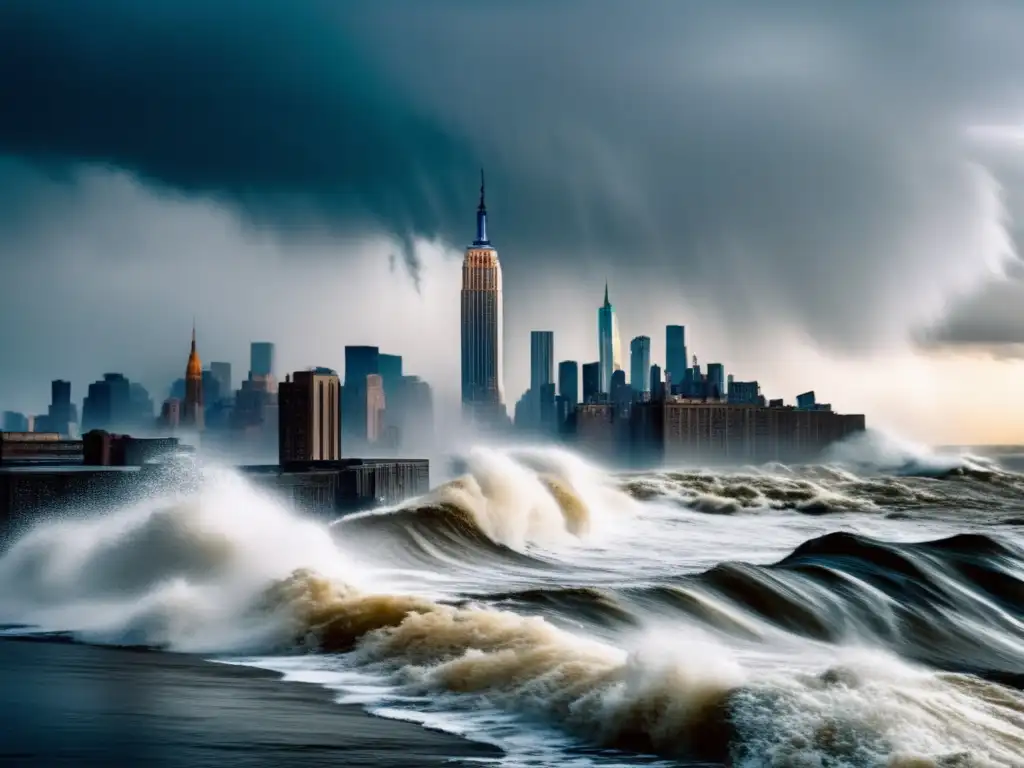
The Role of Hurricanes in the Plot
In the movie, hurricanes are portrayed as one of the many devastating weather events caused by global climate change. The main protagonist, Jack Hall, is a climatologist who warns the US government about the impending danger of a massive hurricane headed towards North America. The hurricane caused by the melting Arctic ice packs is so severe that it sets off a series of catastrophic events, leading to a worldwide ice age.
Potential Scenarios Where Hurricanes are Depicted
The most significant hurricane scene in The Day After Tomorrow is when a massive storm hits New York City, causing widespread destruction and flooding. The storm's aftermath is depicted in great detail and includes scenes of people stranded, evacuating, and seeking shelter. The hurricane also serves as a catalyst for other catastrophic events, including tornados and massive hailstorms, contributing to the film's overall sense of disaster and urgency.
Key Aspects of The Day After Tomorrow (2004)

Storyline and Characters
The storyline revolves around climatologist Jack Hall's efforts to save his son Sam, who is stranded in New York City amid the catastrophic weather events. The movie's plot borrows heavily from classic disaster films, with its dramatic sequences and heartwarming moments. The characters are well developed, with Quaid's portrayal of Jack Hall being especially noteworthy. Gyllenhaal and Rossum also turn in strong performances, adding depth and believability to their respective characters.
Cinematic Techniques and Special Effects
The movie earns high marks for its use of special effects and cinematography techniques. The hurricane scenes are shot with realism, featuring breathtaking visuals and quality special effects that bring the viewer right into the heart of the storm. The movie's depiction of flooding and destruction is impressive, thanks in large part to the use of practical effects and authentic-looking sets. Overall, the film's technical aspects help immerse the audience in the world of the movie, making it a thrilling experience.
Realism and Accuracy
The Day After Tomorrow takes many liberties with scientific fact and realism to further its storyline's dramatic impact. While the movie's portrayal of global warming and climate change is accurate, its depiction of rapid-onset ice ages is not scientifically plausible. However, the movie's treatment of hurricanes is more realistic, depicting them as powerful, deadly storms capable of catastrophic damage. The scenes of flooding and destruction are eerily reminiscent of real-life hurricane footage, giving the movie a sense of accuracy and authenticity that other disaster movies lack.
Comparing The Day After Tomorrow (2004) to Other Hurricane Movies
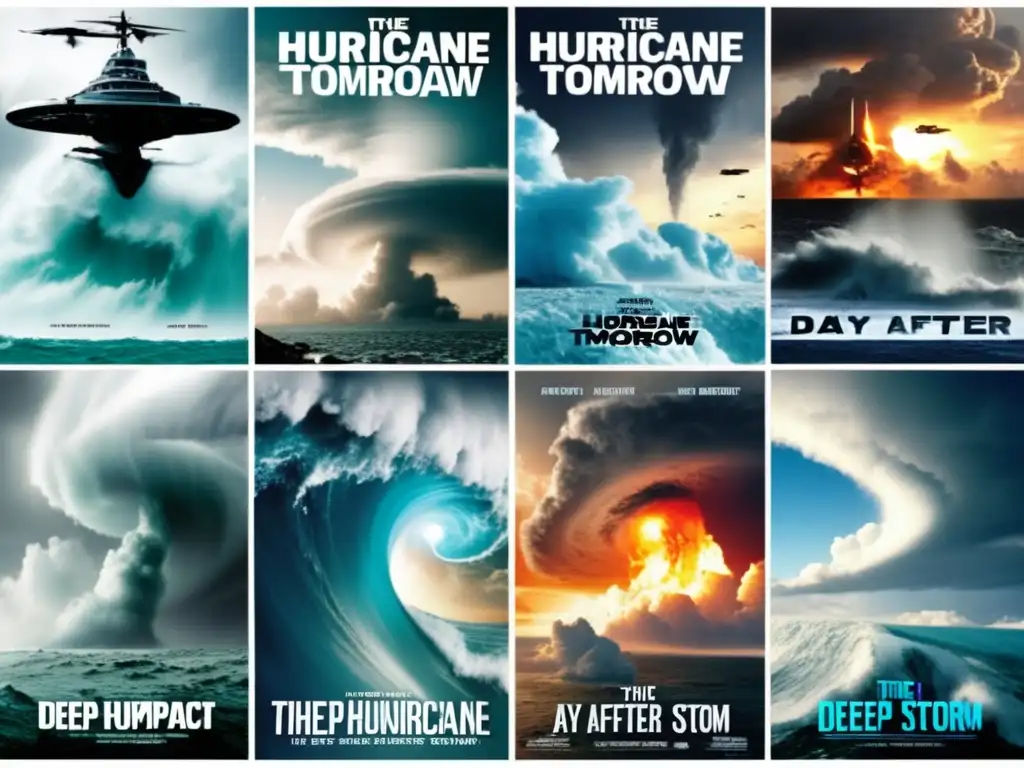
The Perfect Storm (2000)
Released four years prior to The Day After Tomorrow, The Perfect Storm also deals with the devastating impact of hurricanes on communities and people's lives. However, while The Perfect Storm is based on a true story, The Day After Tomorrow is a fictional tale that leans heavily on science fiction elements. Additionally, while both movies feature intense hurricane scenes, the respective tone and atmosphere between the two movies differ significantly. The Perfect Storm is a movie that emphasizes the characters' bravery and resilience in the face of danger, while The Day After Tomorrow focuses on the more catastrophic impact of weather events on humanity as a whole.
The Hurricane (1999)
The Hurricane is a biographical sports movie based on the life of Rubin "Hurricane" Carter, a boxer who was wrongly convicted of murder. The movie features a hurricane scene where violent winds and rain pound the prison where Carter is being held. While less focused on the hurricane itself, the scene serves as a metaphor for the storm brewing around Carter's life and the injustice he faces. The Hurricane is a powerful and moving drama that uses the hurricane scene as a metaphor, whereas The Day After Tomorrow uses it as a central device to explore the film's overall theme of global climate change.
Popular Opinion and Reception of The Day After Tomorrow (2004)
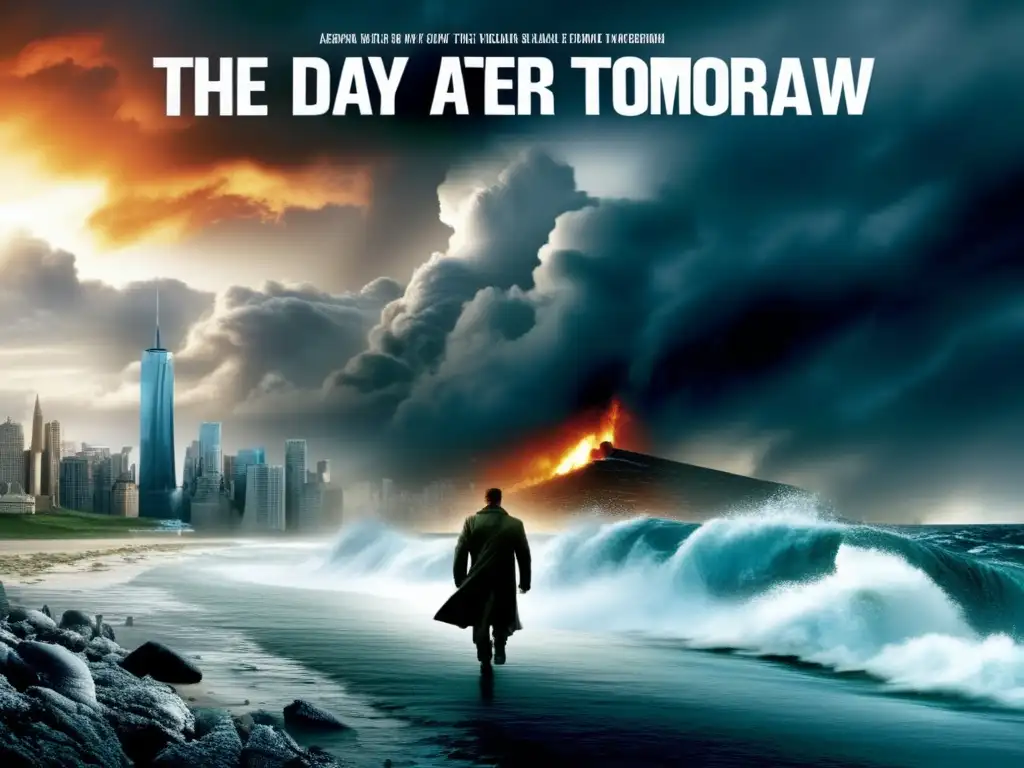
The Day After Tomorrow received mixed reviews from both audiences and critics alike. Some praised the movie's visual effects and exciting storyline, while others criticized its unscientific approach to its subject matter. However, the movie remains a cultural touchstone, having spawned numerous internet memes and parodies. It also served as a catalyst for discussions about climate change and the impact of human activity on the planet. Despite its flaws, The Day After Tomorrow remains an exciting and thrilling disaster movie with a memorable portrayal of hurricanes and their destructive potential.
Frequently Asked Questions

-
Q: Is The Day After Tomorrow's portrayal of hurricanes scientifically accurate?
A: While the movie takes some liberties with scientific fact, its depiction of hurricanes is more realistic than other disaster movies. The scenes of destruction and flooding are eerily reminiscent of real-life hurricane footage and give the movie a sense of accuracy and authenticity.
-
Q: What is The Day After Tomorrow's overall message?
A: The movie's overall message is a warning about the catastrophic impact of climate change on the planet. It serves as a cautionary tale about the potential consequences of human activity on the environment and the importance of taking action to mitigate the damage.
-
Q: How does The Day After Tomorrow compare to other disaster movies?
A: While The Day After Tomorrow takes some liberties with science fiction elements, it remains a thrilling and exciting disaster movie that compares favorably to other films in the genre. Its portrayal of hurricanes is particularly noteworthy for its realism and accuracy.
-
Q: What was The Day After Tomorrow's box office performance?
A: The movie grossed over $540 million worldwide, making it the fourth-highest-grossing film of 2004.
-
Q: What impact did The Day After Tomorrow have on popular culture?
A: The movie remains a cultural touchstone, having spawned numerous internet memes and parodies. It also served as a catalyst for discussions about climate change and the impact of human activity on the planet.
Conclusion
The Day After Tomorrow is a thrilling and exciting disaster movie that portrays the catastrophic impact of global climate change. Among its many natural disasters, the movie's portrayal of hurricanes is particularly noteworthy for its realism and accuracy. While the film takes some liberties with scientific fact and realism, it remains a powerful and moving story that highlights the importance of taking action to mitigate the damage caused by climate change. As we continue to grapple with the effects of climate change, The Day After Tomorrow serves as a reminder of the power and potential devastation of hurricanes and other natural disasters. Let us learn from this movie and work together to create a better, safer future for all.
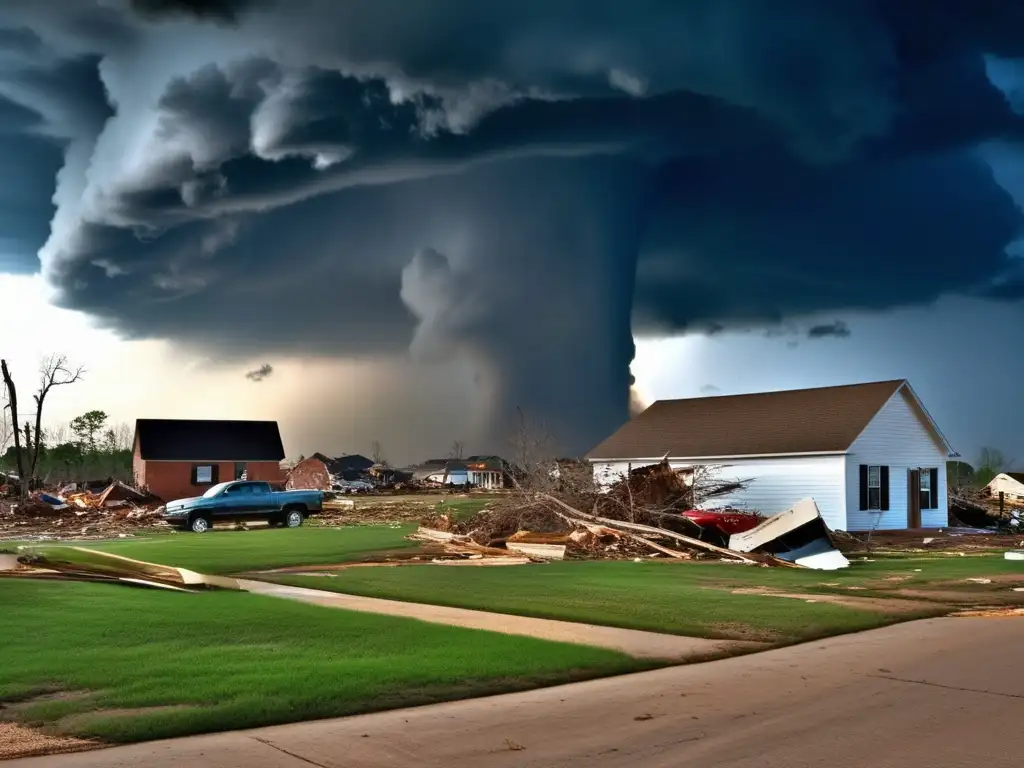 Category 6: Day Of Destruction (2004, TV Movie)
Category 6: Day Of Destruction (2004, TV Movie)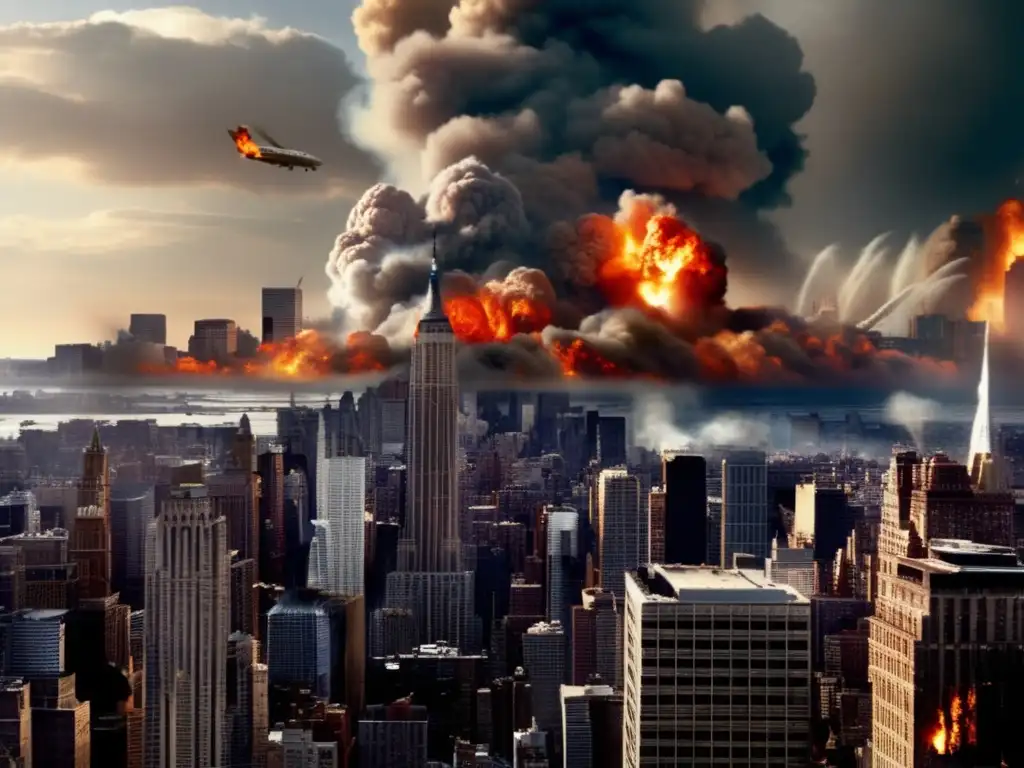 Category 7: The End Of The World (2005, TV Movie)
Category 7: The End Of The World (2005, TV Movie)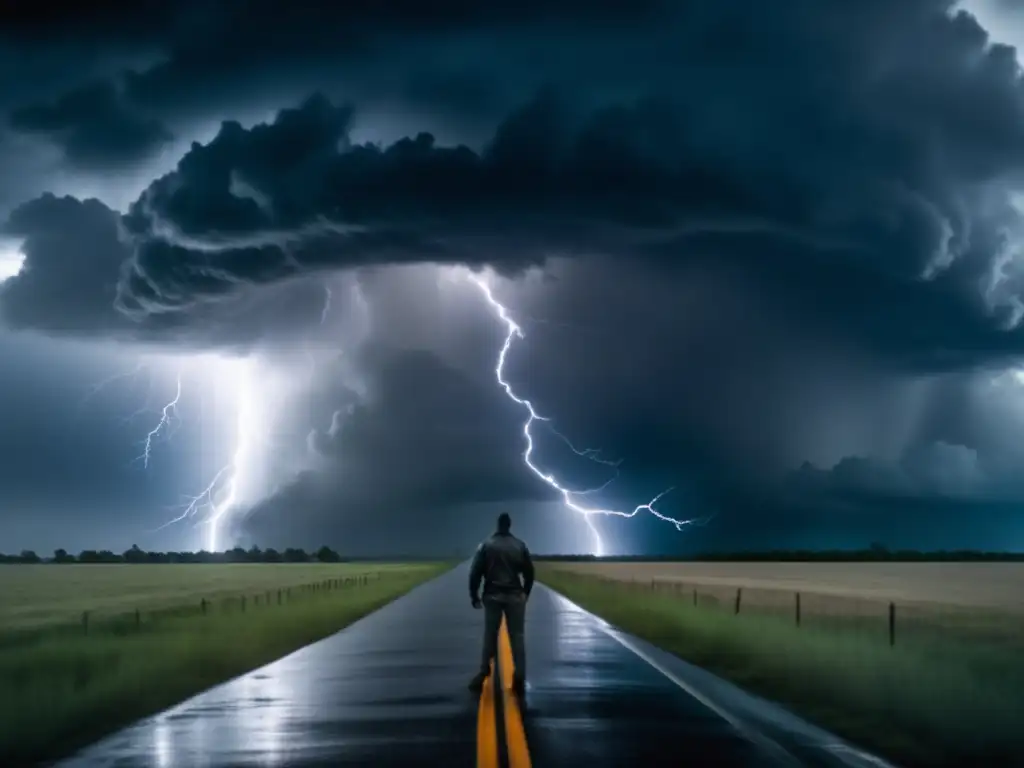 Into The Storm (2014)
Into The Storm (2014)If you want to discover more articles similar to The Day After Tomorrow (2004), you can visit the Media on Hurricanes category.
Leave a Reply

Articulos relacionados: